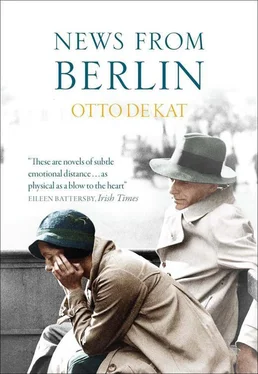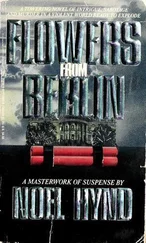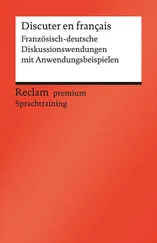“How are your daughter and your son-in-law?”
Oscar heard the question, wanted to evade it, but said: “I saw them last week, in Geneva. We had lunch in a restaurant.”
Morton glanced up. Oscar sat very still, poised to take the plunge.
“Any news from that front, by any chance?”
They would arrest Emma at their leisure, just her, not Carl. And would interrogate her at their leisure, let her stew, week after week, they would foist her onto some other interrogation team if it suited them.
“Trott wants to liaise with you. He’s doing a lot to mobilise opposition to his bosses.”
“We are aware of that, Verschuur, but we don’t trust him. We have the impression that he’s playing a double game, although we also believe that it won’t be long before they invade the Soviet Union. Did your son-in-law have anything to say on the subject?”
They might let her go after a few months, but on the other hand they might well keep her locked up indefinitely.
And then it hit him what Morton had just said: they had doubts about Trott. In other words, anything Oscar told them about Operation Barbarossa and when it was due would not be credited. His information came from Carl, and by extension from Trott, whom they did not trust. Wasn’t that what Morton had said? Trott, Carl, Emma, nothing coming from them would be listened to, everybody in Germany was tainted, good Germans simply did not exist. However high the risks being taken, however brave it was to resist, the English saw nothing but duplicity. At best they were opportunists, Trott and his friends. My daughter is one of them, Morton. The message was clear: total cynicism regarding whatever forms of resistance might be striving to emerge in the land of the enemy. Oh my God, Emma.
“No, not really. Carl mentioned the west, but not the east. Smith did, explicitly so. Not Carl, though.”
Morton waited, in vain. Oscar would keep the news to himself, they would not believe him anyway. The operation would go ahead, as the Russians were bound to have discovered by now. How many million troops did they reckon on going over there, how much murder and manslaughter could a nation endure, who would warn the people at the border, tell them to run, flee, make themselves scarce.
They fell silent, the hour was up. Morton had work to do.
Mission unaccomplished.
Their footsteps on the marble floor sounded refined, their shoes creaked, their coats were held out for them, Morton’s umbrella snapped open. Oscar followed him with his eyes as he picked his way between the other umbrellas in the direction of the park. The gait of a man of purpose, a man without a daughter.
Morton must have noticed that Oscar was being evasive, or even disingenuous – saying nothing can amount to lying, saying nothing can mislead. But Morton had failed to register Oscar’s horror at the casual passing of the death sentence on every German, every man or woman valiantly swimming against the current.
Emma was on the wrong side, and that was that.
Should she ask Adriaan Wapenaar for help? Her father had repeatedly impressed upon her to appeal to him if necessary. Emma had waved aside his concern, but had not forgotten his advice. She knew where he lived: in Grunewald, a fifteen-minute bike ride at most. There was something of the reservation about Grunewald, with its abundant greenery and here and there a tennis court between the houses. The thwack of a tennis ball among the trees epitomised the total disregard for what was happening elsewhere. Why the place had not been plundered was anyone’s guess. But for some reason they had left it alone, their clubs and claw-hammers being put to use elsewhere.
She wheeled out her bicycle, nerves jangling. Why she wanted to speak to him she was not sure – just to be with another Dutch person, perhaps, to speak her own language, see a friend of her father’s. She had no need of a coat; it was still early, but the warmth of June was already thick among the trees. Would Wapenaar know who she was, she wondered. They had met only twice before, and briefly at that. She took the lanes of Dahlem, crossed the main road and turned left into Grunewald. Oak trees and chestnuts caught the sun.
She pedalled along gently rolling avenues in deep shade, with bends that seemed random and illogical. The houses stood some distance apart, secluding ill-gotten gains in tranquillity. Prinz-Albrecht-Strasse was only a few kilometres away, while here men and women sat idly in the windows, languid from the onslaught of summer. Gardeners shifted their ladders from one tree to the next. Cycling through the oasis was a journey to another planet.
Emma knew the way. She and Carl often went there, walking or on their bikes, in an optimistic endeavour to shake off the war. Carl had told her about the history of Grunewald and all the artists, writers and rich folk who used to live there. The current residents, mostly party bosses and industrialists, were an unenviable lot, according to him. Carl Regendorf was a man without grudges of any kind, a greater contrast with the prevailing mood was impossible to imagine. Emma and Carl had fallen in love at great speed, as though intent on staying ahead of the times they were obliged to inhabit, the times of rancour and revenge and unending acts of hatred.
Birds sang in the trees. Loving him more than she did there, at that moment, was impossible to imagine. The thought played on her mind to the slow rhythm of her feet on the pedals. If only she could leave, take him with her to some other country. Their short stay in Switzerland had been so blissfully peaceful. It was there, during a stroll in Geneva, that she had said, on a sudden impulse, why don’t we stay here, Carl, why go back to doom-laden Berlin? Now was the moment, this was their chance, they could disappear – her father would certainly help them. London, America, anything was better than staying put and having to watch as ruination drew near. But she knew the answer. Carl understood how she felt, naturally, but there were his parents to think of, and the rest of the family. They would be rounded up immediately and sent to a camp, or worse. Emma abandoned the thought. They were hostages, she knew that by now.
With one hand she held the shoulder strap of her bag, a girl on her way to school, or to her grandmother’s, in the filtered light of morning. She pushed the pedals round, then lifted her feet off them to freewheel almost to a standstill before pedalling onward again. She took her time cycling to Wapenaar’s home in the heart of Grunewald. No hurry, as she didn’t quite know what she would do when she got there. And anyway it was all a bit pointless, because there was no way she could speak her mind. Nonetheless, she pedalled on, steering her bike to the Bismarckbrücke near the Hubertus lake. She knew the address, although she had never visited the house before.
It was a small villa, not much larger than where Carl and she lived, but with a long garden reaching down to the lake. A wrought-iron gate with climbing roses gave the Wapenaar residence a romantic touch. The front entrance, too, was framed with roses.
The door was opened by a woman. Emma introduced herself, saying she was Dutch and that her father was a friend of Mr Wapenaar’s, that she happened to be cycling around in the neighbourhood, and had wondered if it was alright for her to drop by to say hello. Emma’s flustered preamble made the woman laugh, and she invited her in. Her husband was not at home, but that was of no consequence, she was expecting him back any minute. Would Emma like something to drink? She suggested going out into the garden to sit on the terrace by the lake with a glass of orange juice. She spoke Dutch with a strong German accent, which had a surprising charm to it. Emma did not have the nerve to decline the hospitable offer, and meekly followed Wapenaar’s wife into the garden. It was eleven o’clock, the lake at their feet was smooth and black. A dog barked in the next garden. It seemed unreal, a scene in a film. What was she doing there, why had she come?
Читать дальше












